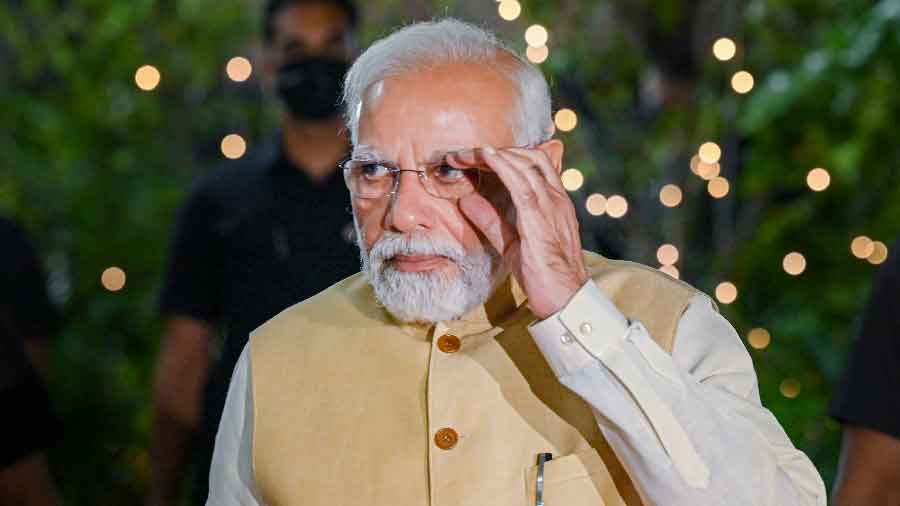Several military veterans have expressed their growing concern and apprehensions at the government’s continued silence on China’s aggressive bid to change the status quo in Ladakh and its failure to even acknowledge the People’s Liberation Army’s intrusion, saying this would boomerang.
“By refusing to even acknowledge Chinese intrusion into our land for more than two years, the Narendra Modi government is playing into China’s hands. The self-deceiving strategy of the government whose only mission seems to be winning elections is going to cost India dear,” a former lieutenant-general told The Telegraph.
What is the harm, a retired brigadier asked, in letting the world know about China’s expansionist design in Ladakh?
“By refusing to admit, for domestic political gain, that they are sitting in our territory, the government is only giving the Chinese a free pass to alter the status quo at the frontier,” he said.
Prime Minister Narendra Modi had told an all-party meeting on June 19, 2020 — four days after the Galwan Valley clash in which 20 Indian soldiers were killed — that “neither have they intruded into our border, nor has any post been taken over by them”.
The Indian and Chinese armies have been locked in a standoff at multiple points in Ladakh since May 2020, with the Chinese estimated to have taken over close to 1,000sqkm of India-claimed territory.
A former major general said: “It has been over two years but there has been no course correction. The Chinese army has been challenging Indian sovereignty in Ladakh but the government remains in denial mode while it continues to hold military talks with China, seeking disengagement from Indian-occupied territory.”
He contrasted India’s aggressive stance and the top leadership’s public statements on Pakistan-sponsored terrorism in India with the deafening silence on China’s transgression into Indian territory.
“PM Modi had invoked the Balakot airstrikes in the run-up to the Lok Sabha polls in 2019 and the BJP leaders, including home minister Amit Shah, had described him as the strong leader who sent shivers down the enemy’s spine. But when it comes to Chinese transgression, the top leadership has chosen not to speak about it for over two years,” the former major-general said.
During the 2019 poll campaign, Prime Minister Modi had asked first-time voters to dedicate their first vote to the valiant soldiers who had carried out the air strike in Pakistan’s Balakot.
During the 16th round of military talks with China last month, India had pressed for Chinese disengagement from Hot Springs and the strategic Depsang Plains where the PLA is said to be entrenched 18km inside India-claimed lines. But the Chinese did not relent.
Indian military veterans have been citing the absence of any mention of status quo ante in recent joint statements to suggest that the Chinese intend to hold on to the territory they have occupied and create a new status quo at the frontier.
The Chinese have pulled back partially in the Pangong Lake, Galwan Valley and Gogra with the creation of buffer zones. They are said to be refusing to budge from the remaining two friction points, Hot Springs and the Depsang Plains.
A retired colonel said the government had so far not disclosed the specific details of the ongoing military talks and what was being discussed with the Chinese army for disengagement.
“Everything remains shrouded in secrecy as to what terms and conditions are being discussed for disengagement. And to keep the domestic audience distracted, the government wants them to uninstall Chinese apps. Who are we deceiving?” he said.
Early this year, India’s then army chief, General M.M. Naravane, had said there had been partial disengagement in eastern Ladakh but the threat at the China frontier had “by no means reduced”.
He said the Chinese had built a lot of infrastructure along the Line of Actual Control and raised their troop deployment manifold. “It remains to be seen whether they will permanently station them there or will be amenable for some de-induction in the times to come,” Naravane had said.











